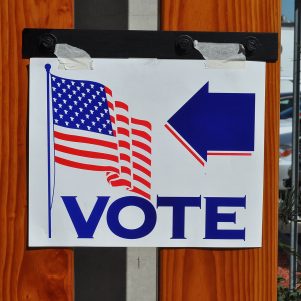Opponents of ‘Inclusive’ Sex Ed Program Hoping To Persuade Worcester Mayor
By Matt McDonald | May 5, 2021, 6:43 EDT

Opponents of a proposed sex education curriculum in Worcester are hoping that the city’s mayor provides the margin of victory tomorrow night.
But they acknowledge it’s an uphill climb.
As of early Wednesday morning, three of the city’s seven school committee members seem committed to voting for the sex ed curriculum. Two are thought to be against it. One is said to be undecided.
And then there’s Mayor Joseph Petty.
On paper, he seems a likely Yes vote. Planned Parenthood, which promotes so-called “comprehensive sexuality education,” has donated to his campaigns and offered him advice on sex ed. He has said that Worcester public schools need to update their current sex education curriculum.
But Petty hasn’t said publicly how he plans to vote on a subcommittee’s recommendation to implement Rights, Respect, Responsibility, a sex education curriculum published by a group called Advocates for Youth. Petty could not be reached for comment by NewBostonPost earlier this week.
The pressure opponents of the curriculum are applying – flooding the subcommittee hearing last week, appearing on Nightside with Dan Rea on WBZ radio AM 1030 in Boston on Tuesday night, and organizing a march to protest against the curriculum Wednesday morning – seems designed in part to try to influence the mayor.
Opponents called in to the online Worcester School Committee subcommittee meeting in force on Monday, April 26.
The Worcester Telegram & Gazette reported late that night that in addition to school officials “many audience members also implored the committee to pass” one of two sex education curriculums under consideration at the time. But opponents who spoke against the sex ed curriculum actually outnumbered supporters by a three-to-two margin – 26 against to 18 for. (Among speakers who identified themselves as Worcester residents, opponents slightly outnumbered supporters, 17 to 15.)
The decision-maker is the Worcester School Committee, an elected body chaired by the mayor that sets policy for the public schools in the city, which is the second largest in New England.
The Worcester situation has statewide implications, because the Massachusetts Legislature is considering making comprehensive sex education mandatory in all public school districts in the state if they teach sex education.
Some public school districts use such programs now and some don’t – but a bill would require public school officials to pick only a comprehensive sex education curriculum approved by the Massachusetts Department of Elementary and Secondary Education if they provide students with information about human sexuality as part of their course offerings.
In Worcester and in some other communities in Massachusetts, the fight is not over whether to teach public school students about the birds and the bees, but rather when – and how.
The bill in the state Legislature is called “An Act Relative To Healthy Youth.” Yet that is the heart of the dispute: Does comprehensive sex education make youth healthy or unhealthy?
You can tell which side someone is on by the terms they use when describing it. Supporters of comprehensive sex education talk about “medically accurate,” “evidence-based,” and “consent focused,” and say it’s designed to help adolescents get information they need, avoid abuse, and build healthy relationships.
Opponents say comprehensive sex education isn’t any of those things and doesn’t accomplish what it supposedly seeks. They sometimes refer to a contrary view called “Sexual Risk Avoidance,” which highlights abstinence from sex for young people. It isn’t a just-say-no approach, its advocates say. Instead, supporters call it a “Just Say Yes” program – helping students “say YES to their dreams and goals, and no to destructive choices and risk behaviors, like sexual activity,” as one web site puts it, so that students can avoid negative effects on their physical health, their emotional health, and their ability to establish stable romantic relationships in the future.
Critics of Sexual Risk Avoidance say it’s unrealistic to ask teen-agers not to have sex without also giving them techniques to keep them physically safe if they choose to engage in it. Supporters say it’s impossible to give young people who are sexually active assurances of safety.
Another flashpoint is how to deal with homosexuality and transgenderism. Comprehensive sexuality education supporters tout what they call its “inclusive” approach – which includes information about same-sex attraction and transgender relationships that affirms those orientations and related sexual activity.
As an example, the curriculum Worcester officials are now considering (Rights, Respect, Responsibility) includes a lesson in Grade 7 sympathetic to same-sex attraction and non-standard gender identity; a lesson in Grade 8 promoting transgender biological males competing on girls sports teams, and another on anal sex and how to use condoms; a lesson in Grade 9 affirming homosexuality and transgenderism, and another offering information about how to get an abortion; a lesson in Grade 10 offering positive views of contraception; and a lesson in Grade 12 on pornography.
Critics of comprehensive sex education say schools should not be promoting expressions of homosexuality and transgenderism, which they say are risky and destructive, leading to physical, emotional, and spiritual suffering.
Mario Pineda, who has a daughter in the city’s public schools, said the proposed sex education curriculum rubs afoul of his culture and undermines his role as a father.
“I myself am a Latino. You guys are talking all about equality and race and understanding diversity. Far from it,” Pineda said during the subcommittee meeting Monday, April 26. “For you to push this type of information to my child is actually racist. And I’m going to tell you why it’s racist. It’s racist simply because it’s not part of our culture as Latinos to discuss these things at the age that you decide that it needs to be discussed. My daughter who’s in third grade doesn’t need to know about anal sex in the future. All right? I the father have that discussion with my wife, with my children at the appropriate time.”
“Age-appropriate” is another point of departure. Both sides endorse it. But they don’t agree on what it is.
One supporter of the proposed curriculum, for instance, last week called on school officials in Worcester to implement sex education in all grades, and argued that even small children need information about sexual activity.
Shelley Rodman, a Worcester resident, told school officials she helped found an organization that fought AIDS in the 1980s.
“And thank goodness we taught people about condom use. So, you might feel that it’s too early at some time. My daughter learned at 4 that it’s not unlike her dentist putting on gloves. To protect against infection,” Rodman said during the subcommittee meeting Monday, April 26.
On the other side, another Worcester mother, Mia McDonald, who said she has four kids, said she looked through the proposed sex curriculum and saw that “some of it wasn’t age-appropriate.”
“And I just want to urge extreme caution in content for younger grades. We need to let them just be kids,” McDonald said.
Such an evaluation of age-appropriateness isn’t valid, said Cara Berg Powers, a Worcester mother of a second-grader who has a doctorate in education.
“I just wanted to note that I’m really troubled by the implications of people who do not do child care development or education work to say that things are not age-appropriate because they make them uncomfortable. Age-appropriate is a real thing that means something. And so I do think it’s important to note that it doesn’t matter if somebody read it and doesn’t feel like it’s age appropriate, in terms of like — it doesn’t negate that, in terms of it actually being rated that in terms of curriculum development,” Powers said.
While parents should have an opt-out option, they shouldn’t control what other children are exposed to, she said.
“It’s really, really important that those parents who are uncomfortable get all the information and transparency to be able to opt out. But for parents like myself, who want to make sure that my daughter gets all of the information that she needs, whether or not I am equipped to give it to her. I should not suffer, and she should not suffer, because of somebody else’s political agenda,” Powers said.
Of the 26 people who spoke against the sex education curriculum, nine said they do not live in Worcester. (Three of the 18 who spoke in favor of the curriculum said they don’t live in Worcester.)
“It’s really, really troubling to hear so many people from out of town tell us how many Worcester folks are uncomfortable about this. Honestly, it doesn’t matter. It’s a scientific reality, that it’s necessary. We know that the research has been done,” Powers said.
Yet a Worcester dad who opposes the sex ed curriculum said supporters aren’t considering what he called “the social and emotional tolls” that an in-your-face, amoral approach to sexual behavior can have.
“It is surprising to me that people look around the world today and decide that the issue is that we’re not talking to kids enough about sex,” said Anthony Zamorro. “Kids are assailed virtually nonstop with sexual images and talk, in television, movies, and in popular music. As a father with three children in Worcester public schools, I find that it is all I can do to provide healthy guidance about human sexuality, and to protect them from unhealthy images and sexual talk.”
He said sex must be treated as serious and purposeful.
“Making sex into something commonplace or casual harms the weakest members of our society the most – women and children, and especially those from poor communities. Women are left with the mental health issues of being used and discarded by men who have been taught that sex is just part of hooking up. And the women who choose to carry their pregnancies to term when birth control methods inevitably fail or are neglected are forced into the difficult life of single motherhood,” Zamorro said.
Allowing parents to opt out of the sex ed curriculum doesn’t solve the problem, he said.
“I’m aware that I can opt out of these programs, but this issue affects us all,” Zamorro said. “We are a community, and I depend on the people in my community to be there for me, and for my children. And I want to be there for them as well. For the mom who’s working two jobs whose son left his opt-out form in the bottom of his backpack. For the young women who deserve to be treated like someone special. And for the kids who deserve to grow up in stable, healthy homes with two parents. Worcester is too diverse to have a narrow ideological education program forced on it, especially on so important a topic. I would ask the committee to recommend a risk-avoidance program that is age-appropriate, and allow us as parents to do our job and to provide moral formation to our children.”
The Worcester situation is further complicated by confusion over what school committee members may be seeking to implement on Thursday night. At the subcommittee meeting last week, the superintendent of schools, Maureen Binenda, said school officials are looking to replace the city’s current, less comprehensive sex education curriculum for use in grades 7, 8, and 9 as part of the district’s kindergarten-through-12th-grade health curriculum.
But that’s not how subcommittee member John Foley framed it when he made a motion to recommend Rights, Respect, Responsibility toward the end of the subcommittee meeting Monday, April 26.
“Part of what I like about some of the curricula we’ve been looking at here – and especially Rights, Respect, Responsibility – is the K-to-6 component to it. I really like the kind of skills that are developed,” Foley said. “… I support fully a comprehensive K-to-12 inclusive, evidence-based sexual and health curriculum, and I want that curriculum to be age-appropriate, and to really, to meet our students where they are.”
Foley made four motions, all of which passed, 2-1. For the first and most consequential, he said: “To adopt Rights, Respect, and Responsibility as a comprehensive K-to-12 health curriculum for the 2021-2022 school year, implement it with fidelity, utilize the sexual education curriculum for the middle school and high school levels, and to provide the necessary training for the teachers.”
How will the vote go?
Foley and fellow subcommittee member Molly McCullough voted for the sex education curriculum during the subcommittee meeting last week. McCullough and another member of the Worcester School Committee, Tracy O’Connell Novick, were endorsed by Planned Parenthood Fund of Massachusetts during their campaigns for school committee in 2019. Those three are widely thought to be Yes votes for the curriculum tomorrow night.
Subcommittee member John Monfredo voted no last week and subsequently provided NewBostonPost with a substantive argument against the sex ed curriculum. (He is also the only one of the seven school committee members who has responded to a request for comment by NewBostonPost as of early Wednesday.)
Monfredo and another school committee member, Dianna Biancheria, are expected to vote No on Thursday night.
For opponents to defeat the sex ed curriculum, they would need both committee member Laura Clancey (who is thought to be undecided) and Mayor Petty. If they don’t get both, the curriculum will likely pass by either a 5-2 or 4-3 vote.
The Worcester School Committee is scheduled to meet in closed session at 5 p.m. Thursday, May 6, followed by a 6 p.m. public session when the sex education curriculum is supposed to come up.











